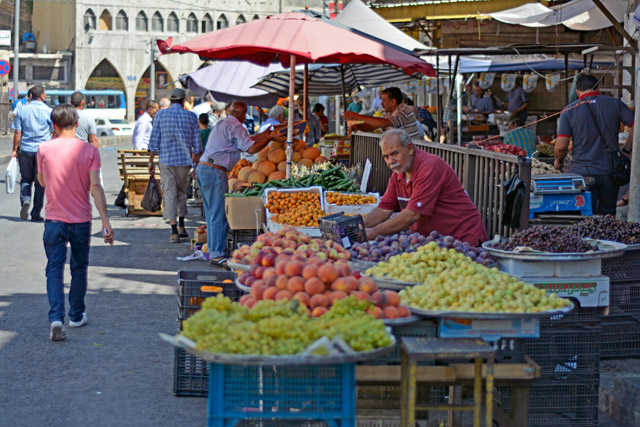AMMAN — Agriculture Minister Khaled Hneifat on Friday said that the ministry considers the health of Jordanians, who consume 75 per cent of the national agricultural produce, a “priority”.
During an interview with Jordan TV’s Sixty Minutes, the minister stressed his ministry’s commitment to preserve the quality and safety of Jordanian agricultural produce.
Hneifat outlined the ministry’s plans to monitor production and increase campaigns to raise farmers’ awareness on using pesticides, the amounts allowed and the expiry periods.
He said that Jordanian produce is distinguished by its “high quality”, noting that the ministry’s measures aim to apply legislations related to international standards of safety and quality.
The minister said that Jordanian products have similar standards to those consumed by some Gulf countries, which did not ban the Jordanian exports, but instead delivered a warning that pesticide residues are high according to newly-adopted standards, which led to the refusal of some shipments as they failed to abide by new European standards.
Last year, 8,000 tonnes of Jordanian produce were rejected by several countries, including the UAE, Spain and Egypt, according to the minister, who called it the “right” of those countries.
Meanwhile, Jordan rejected and destroyed 1,440 tonnes of products which had been refused entry to the Jordanian market, according to Hneifat.
The minister added that, over the last three years, Jordan had exported 680 shipments, all accepted in Europe except for five.
The minister said that His Majesty King Abdullah was briefed by the ministry on pesticide levels, tests and safety measures.
The ministry also formed a dedicated committee and will provide six laboratories with new equipment to conduct safety tests.
Most of the practices of adding pesticides have been “committed by foreign workers out of ignorance or seeking quicker profits”, Hneifat claimed, adding that the government is reducing the number of foreign labourers and encouraging domestic workers.
